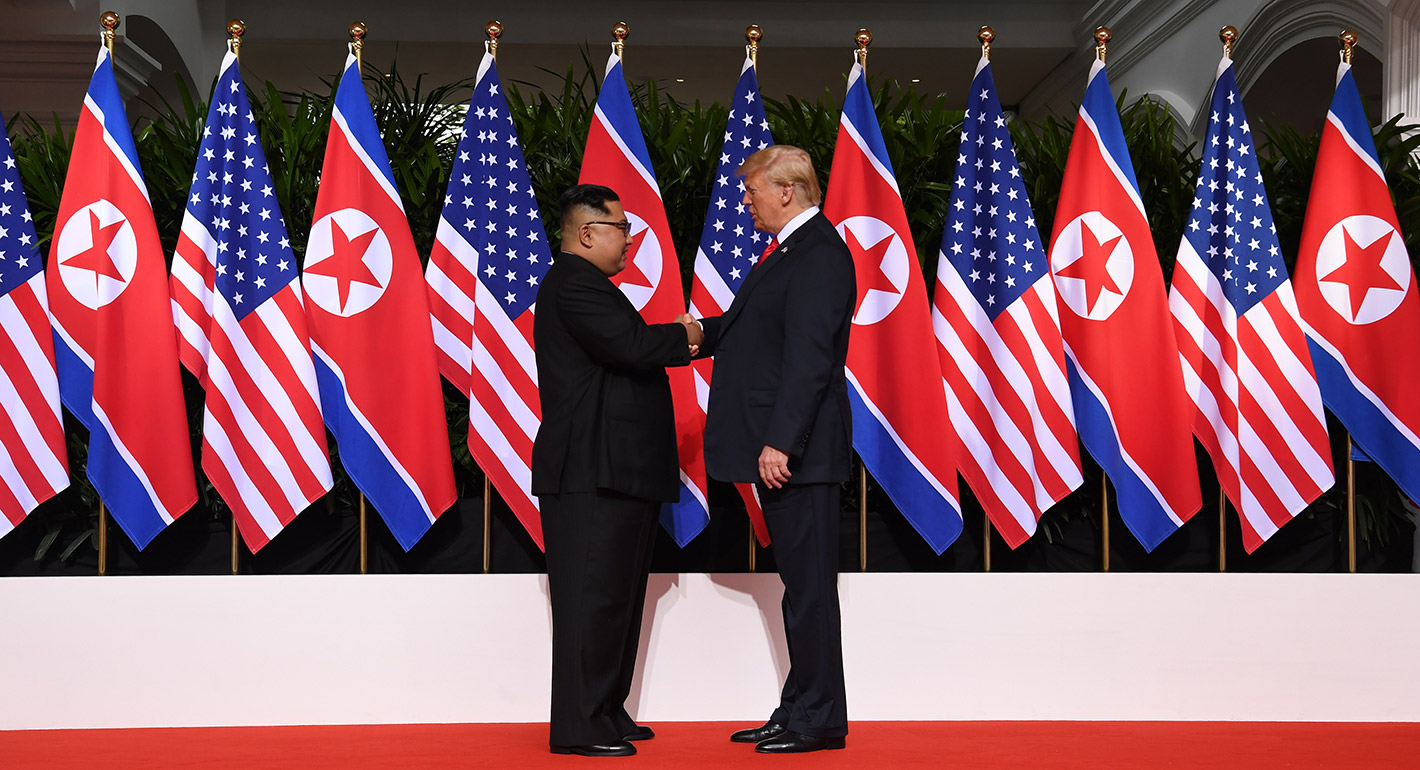Source: China Leadership Monitor
The long-awaited and much-hyped summit between U.S. President Donald Trump and North Korean leader Kim Jong-un was finally held on June 12, 2018. The purpose of the talks was to improve relations between the U.S. and North Korea and to establish a clear basis for the resolution of the escalating crisis triggered by the development of Pyongyang’s nuclear arsenal. Nearly five hours of talks between the two leaders resulted in “fulsome declarations of a new friendship but just vague pledges of nuclear disarmament.”1
Beyond the unprecedented nature and positive atmospherics, the most significant outcome of the summit was a short joint statement. It asserted that Trump and Kim were committed to implementing four agreed-upon stipulations “fully and expeditiously” via follow-up negotiations at the “earliest possible date.” These include:
- A commitment to “establish new U.S.-DPRK relations in accordance with the desire of the peoples of the two countries for peace and prosperity;”
- Joining “efforts to build a lasting and stable peace regime on the Korean Peninsula;”
- A DPRK commitment “to work toward complete denuclearization of the Korean Peninsula;” and
- A commitment “to recovering POW/MIA remains.”2
In addition, Kim destroyed a nuclear weapons test site and Trump announced the suspension of U.S.-ROK military exercises. Yet despite such arguably positive gestures, the two countries made no outward progress in developing the specific goals, timing, and roadmap for the denuclearization of the Korean Peninsula.
While some observers in the People’s Republic of China (PRC) and elsewhere hailed the summit as a step toward peace and stability on the peninsula, many in the U.S. criticized it as high on gestures of good will but low on substance, while providing Pyongyang (and Beijing) with far more strategic gains than the U.S.3
This essay describes and assesses the Chinese views to date on the Singapore summit. As usual, such views are divided into authoritative and non-authoritative categories to identify possible lines of debate within both official and unofficial leadership and elite circles.4 The essay ends with a summary and assessment of the Chinese perspective and its implications for the North Korea nuclear crisis and U.S.-PRC relations.
This article will be published by the China Leadership Monitor.
Notes
1 Kevin Liptak, “Trump’s North Korean gamble ends with ‘special bond’ with Kim,” CNN Politics, June 12, 2018, https://www.cnn.com/2018/06/11/politics/trump-kim-summit-singapore/index.html.
2 “Full text of Trump-Kim signed statement,” CNN Politics, June 12, 2018, https://www.cnn.com/2018/06/12/politics/read-full-text-of-trump-kim-signed-statement/index.html.
3 See Jung H. Pak, Jonathan D. Pollack, Evans J. R. Revere, Robert Einhorn, Ryan Hass, Richard Nephew, Katharine H.S. Moon, Jonathan Stromseth, Michael E. O’Hanlon, Tarun Chhabra, and Jeffrey A. Bader, "Around the halls: Brookings experts react to the Trump-Kim Jong-un summit in Singapore," Brookings Institution, June 12, 2018, https://www.brookings.edu/blog/order-from-chaos/2018/06/12/around-the-halls-brookings-experts-react-to-the-trump-kim-jong-un-summit-in-singapore/; Nicholas Eberstadt, "Kim Wins in Singapore," National Review, June 21, 2018, https://www.nationalreview.com/magazine/2018/07/09/kim-jong-un-singapore-summit-north-korea-wins/; and Gillian Wong and Christopher Bodeen, “China Winner From Summit but Wary of Closer US-N. Korea Ties,” US News, June 13, 2018, https://www.usnews.com/news/world/articles/2018-06-13/after-summit-china-likely-to-remind-n-korea-of-close-ties.
4 For a detailed description of the nature and definition of various types of Chinese sources, see Footnote 1 in Michael D. Swaine, “Chinese Views of the U.S. National Security and National Defense Strategies,” China Leadership Monitor 56 (May 2018), https://www.hoover.org/sites/default/files/research/docs/clm56ms.pdf.





.jpg)